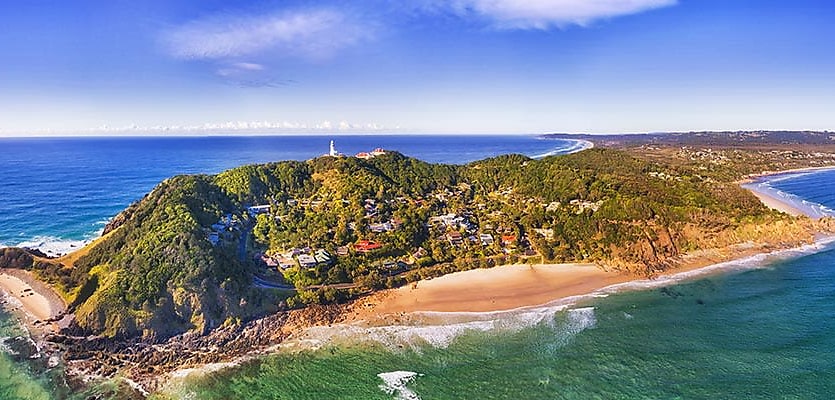Removing short-term rental accommodation (STRA) options would only add nine months’ supply to the national housing stock, new research has revealed.
Despite numerous calls for regulation of the STRA space and industry leaders advocating for the return of rental stock to the long-term market, short-term accommodation options only account for 1.2 per cent of Australia’s total housing stock, according to new insights from property research collective PAR Group.
Based on the findings of their research, PAR Group is arguing that the imposition of limitations on short-term accommodation across the country “is unlikely to ease rental property shortages given the small number of short-term listings”.
Instead, such restrictions would have a drastic and negative impact on Australia’s domestic tourism industry.
PAR Group researchers said that even if all short-term letting was to cease, “it is unlikely to result in a composite increase in long-term letting”.
Citing CoreLogic figures from July 2023, the researchers pointed out that 32.7 per cent of all current property listings are owned by investors.
While investors currently make up approximately 30 per cent of the entire property market (11 million homes), PAR Group discovered that this demographic is exiting the investment market for a myriad of reasons: higher interest payments, changes to rental tenancy legislation, increases to land tax in selected states and potential restrictions on short-term rentals – not because they are looking to enter the short-term marketplace.
On the other side of the coin, the rise of short-term accommodation is “strongly linked to Australian domestic tourism”.
According to the researchers, short-term accommodation “plays a key role facilitating tourism, whether this be international travellers, music festivals, food and wine showcases or sporting events”.
Still, even in tourist hotspot areas surveyed in the report, Airbnb listings “account for only 1.3 per cent of total housing stock” – only a slight increase on the 1.2 per cent proportion of STRA nationwide.
The sentiment is one shared by short-term property management group Alice’s Home business managing director, Seiko Ma.
She is also of the belief that it’s the tourism industry that would most suffer from restrictions being placed on STRA properties, acknowledging that “whilst normal rental properties are focused on population housing, STRs and Airbnb properties are serving families and individuals holidaying and looking for a different and more tailored experience than hotel accommodation”.
With many of these short-term properties tailored differently to their long-term counterparts, Ms Ma is wary of changing the conditions of short-term rentals and offering them up in the long-term marketplace, given investors’ different revenue management needs.
She explained that “changing the conditions of their normal rental agreements to suit tenants that require the property for different purposes than what it was initially intended will alter their own revenue management calculations significantly”.
And the flow-on effects of any legislation or policy changes could have unintended consequences.
“If the outcome of owning an STR property changes, both from the investment point of view, but also their own personal enjoyment, such as meeting different people from varying backgrounds frequently, it may not be worth it for them anymore. Property owners may consider taking their STR out of the property pool altogether, and if these are private separated areas of their own home, they won’t go onto the market.”
Without STRs and Airbnb property, Ms Ma expressed the belief that hotels and serviced apartments would once again “dominate the market for holiday-makers and people travelling for work and study purposes”.
“STRs and Airbnb properties should remain exactly that, and be for the purpose they were intended, rather than a stopgap for a much larger economical issue,” Ms Ma concluded.
REB recently considered the question: Are holiday rentals being used as Byron Bay’s supply scapegoat?
ABOUT THE AUTHOR

Grace Ormsby
Grace is a journalist across Momentum property and investment brands. Grace joined Momentum Media in 2018, bringing with her a Bachelor of Laws and a Bachelor of Communication (Journalism) from the University of Newcastle. She’s passionate about delivering easy to digest information and content relevant to her key audiences and stakeholders.







You are not authorised to post comments.
Comments will undergo moderation before they get published.